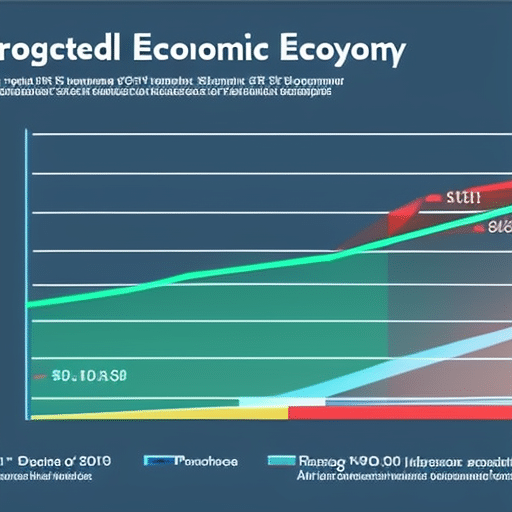The digital economy is transforming the way we work and live.
By 2030, the digital economy will be even more prevalent, and it’s important to understand how it will shape our lives.
As technology advances, businesses and individuals will have new opportunities to take advantage of, but there will also be a range of cybersecurity challenges that need to be addressed.
It’s also important to consider how the digital economy may impact traditional industries and the implications for economic and social development.
With this article, we’ll explore what the digital economy will look like in 2030 and what it could mean for us.
Technologies Enabling the Digital Economy
You’ll be amazed at the incredible technologies that are enabling the digital economy!
From artificial intelligence and robotics to the Internet of Things, these technologies are transforming the way we do business and interact with each other.
By leveraging AI and robotics, businesses can automate mundane, labor-intensive tasks and free up resources to focus on innovation and customer service.
The Internet of Things is connecting devices and systems, allowing businesses to gain real-time insights into their operations.
With this data, businesses can make better, faster decisions, leading to improved efficiency, cost savings, and increased profits.
By combining these technologies, businesses can create a more streamlined and efficient digital economy.
Opportunities for Businesses and Individuals
The digital revolution has presented unprecedented opportunities for businesses and individuals alike, allowing them to make their dreams a reality. These opportunities have been enabled by advances in technology, such as cloud-based services, artificial intelligence, and the internet of things.
For businesses, the digital economy provides an opportunity to expand their reach, improve efficiency, and gain access to new markets. It also enables them to create a higher level of customer engagement and to improve customer service.
For individuals, the digital economy provides an opportunity to launch their own business, work remotely, and access more global opportunities. Additionally, individuals can use the digital economy to increase their earning potential and to develop new skills.
With the right approach, businesses and individuals can take full advantage of the digital economy and create a brighter future.
Cybersecurity Challenges
With the digital revolution comes an increased risk of cyber attacks, posing a significant challenge for businesses and individuals alike.
Cybersecurity threats can range from malware and phishing to data theft, fraud, and more. It is essential for organizations and individuals to take the necessary steps to protect their information.
Fortunately, there are a number of measures businesses and individuals can take to protect themselves from these threats, such as implementing two-factor authentication, installing anti-virus software, and backing up sensitive data.
It’s also important to be mindful of online activity, such as avoiding clicking on suspicious links, downloading untrustworthy files, and using strong passwords.
By taking these steps, businesses and individuals can reduce the risk of cyber attacks and ensure their online security.
Impact on Traditional Industries
As technology advances, its impact on traditional industries can be significant. The digital economy has caused a shift in the way traditional industries approach their business. Companies that were once solely reliant on physical locations and physical products are now being forced to enter the digital world or risk being left behind.
Businesses that have traditionally served only a single geographic area must now grapple with the global reach of the digital economy. Traditional industries now have to compete with much larger and more nimble digital companies to survive.
The digital economy has also allowed companies to quickly expand their reach to new markets, allowing them to quickly capitalize on new opportunities. This has the potential to disrupt traditional businesses, as they may not have the resources or capabilities to compete with larger digital companies.
Additionally, the digital economy has created new opportunities for businesses to increase profits by offering services or products to a large number of customers at once. This can be difficult for traditional businesses to compete with, as they may not have the same scale or resources.
Implications for Economic and Social Development
You’re seeing how the digital economy impacts economic and social development. It’s transforming how people live, work, and interact, and this has far-reaching implications for economic and social development.
Digital technology is creating new industries and disrupting old ones, while also changing how individuals, businesses, and governments access and use resources. This shift is providing new opportunities for economic growth, jobs, and social advancement, while at the same time creating new challenges such as digital inequality, privacy, and security.
There is tremendous potential for digital technology to be leveraged for economic growth and social development, but it’s important for governments and companies to ensure that these benefits are shared widely among all citizens.
Conclusion
You’ve seen the potential of the digital economy in 2030 – the opportunities for businesses and individuals, the challenges of cybersecurity, and the impact on traditional industries.
It’s clear that the digital economy is going to have a massive effect on our economic and social development in the years to come.
We need to be prepared to take advantage of this new economy and make sure we’re ready for the challenges that come with it.
With the right strategies and technologies, we can ensure that the digital economy of 2030 is a success for everyone.
Let’s make sure we’re ready for the future.
